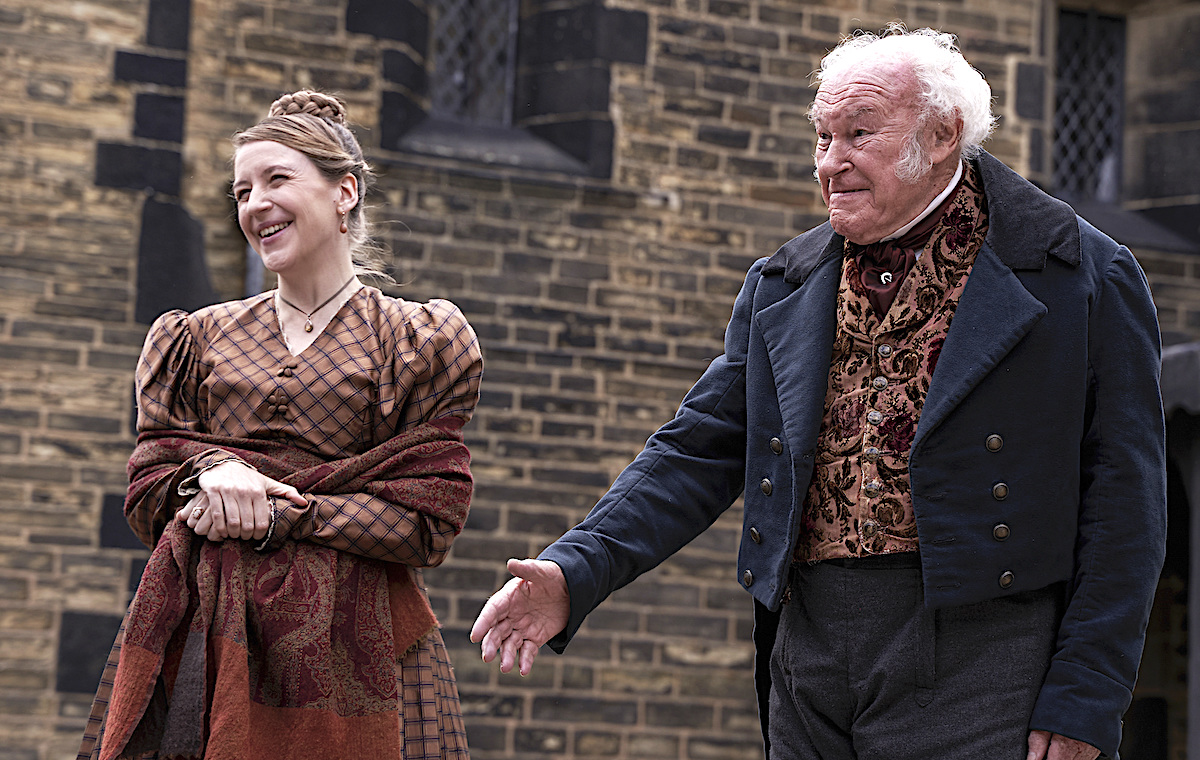Into the BBC One Sunday slot just vacated by Tommy Shelby of the Peaky Blinders returns Suranne Jones’s Anne Lister, another costume-drama maverick with striking headgear, definite leadership qualities and a way with a pistol. “They’re all a bit scared of you,” her younger sister Marian (Gemma Whelan) tries to explain to her after she has given an insubordinate servant 20 minutes to pack up and leave. “Why?” demands Anne, uncomprehendingly, as she loads her gun.
This second series from Sally Wainwright arrives with even more of a swagger than the first. Inevitably, tossing the grenade of Anne “Gentleman Jack” Lister’s mannish behaviour and sapphic love affairs into primetime drama-land can’t have the impact of the first series in 2019. We are no longer surprised to see the impeccably suited Anne striding through town with her cane and man’s hat, berating lesser mortals (mostly overweight greying men) and then going home to record her day, how many kisses she received from her beloved included, in an encrypted journal – the actual one is the source of much of the series’ biographical detail. But there is a brisker tempo, more of a snappiness to editing and tone this time round, under the direction of Edward Hall.
There is also less sense of historical context initially, even though it’s 1834 now and the Poor Law Act and the recent abolition of slavery would in reality be in the air. Season one took place in 1832, in the shadow of the Reform Act that had given the vote to most men, a source of caustic comments from Anne; but season two starts off more concerned with her love life. She has exchanged oaths with young heiress Ann Walker (Sophie Rundle), now nicknamed Adny, and has prepared the way for her to move into the Lister home at Shibden Hall, near Halifax, as a “companion”. Maybe the difficulties of this illegal relationship – claimed as the UK’s first lesbian marriage – will surface as the series progresses, but for now the lovers live in a TV bubble where anything goes in the name of a good romance, with only disagreeable relatives to contend with.
The railways appearing on the horizon do engage Miss Lister’s attention eventually; and the horror farm where miscreants disappear mysteriously to the sound of chomping pigs is still in play, as are the two brothers apparently still invisibly stealing Anne’s coal underground. But these are side issues for the moment.
 If you are looking for an original kind of comic drama, though, not a meticulous history lesson, this is still the show for you. It looks a million dollars, which is probably at least what co-producer HBO put into it. Its locations, such as half-timbered Shibden Hall, home of the real Anne Lister, seem even more beautiful, tricked out with elegant wallpapers, exotic curtaining and fine china to drive a heritage lover crazy with desire. And to eyes weary of being assaulted by the Day-Glo fright-frocks of Bridgerton and the ugliness of The Gilded Age's idea of opulent interiors and haute couture, Gentleman Jack is a soothing balm, a walking V&A.
If you are looking for an original kind of comic drama, though, not a meticulous history lesson, this is still the show for you. It looks a million dollars, which is probably at least what co-producer HBO put into it. Its locations, such as half-timbered Shibden Hall, home of the real Anne Lister, seem even more beautiful, tricked out with elegant wallpapers, exotic curtaining and fine china to drive a heritage lover crazy with desire. And to eyes weary of being assaulted by the Day-Glo fright-frocks of Bridgerton and the ugliness of The Gilded Age's idea of opulent interiors and haute couture, Gentleman Jack is a soothing balm, a walking V&A.
The women, in particular, look like they have stepped out of a Phiz illustration, hair arranged into impossibly complicated miniature sculptures. Their dresses are almost works of art too, quantities of subtly coloured silk with lavish ballooning sleeves and pristine lace collars. One scene almost took my breath away: the women of the Walker clan at home, each in a shade of purple like a colour swatch, from deep purple for the eldest to lilac for the youngest. Hats off to costume designer Tom Pye and production designer Anna Pritchard.
The supporting cast are a continuing delight, from Gemma Whelan’s simmering, sullen Marian and Timothy West’s comically deaf dad to Stephanie Cole, who is enjoying herself hugely as the Walker clan’s elder stateswoman, Aunt Ann, a bulldog in a bonnet. Joanna Scanlan makes a memorable appearance in a later episode as well (pictured above, Whelan and West).
But it’s Suranne Jones’s performance that’s still the main attraction. She’s a ball of tightly coiled energy, her big soulful eyes under mad brows looking stranded in her angular face, any softness in them offset by the two rolls of iron curls over each ear. There was a lighter side to her in season one that seems to have receded now. Her clipped pronouncements are rattled off, like her walking, at a lick, though she still pauses for some fleabaggery, looking knowingly at the camera to induct the audience into her thoughts and make asides Francis Urquhart would approve of. We are her co-conspirators in a one-woman campaign against inefficiency, corruption, woolly thinking, ignorance, mediocrity… Which is more fun than her romantic liaisons, to be honest.















Add comment